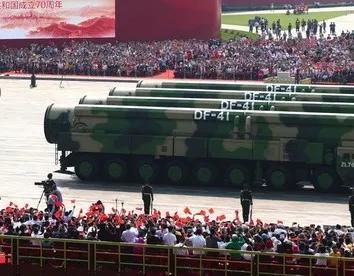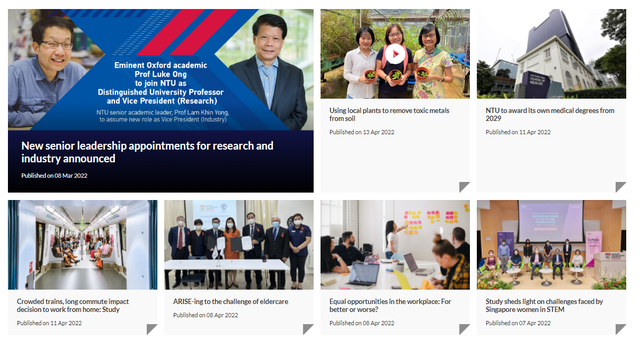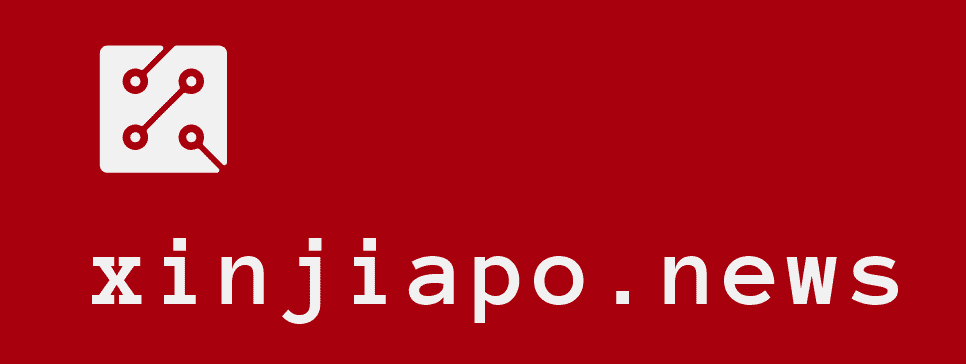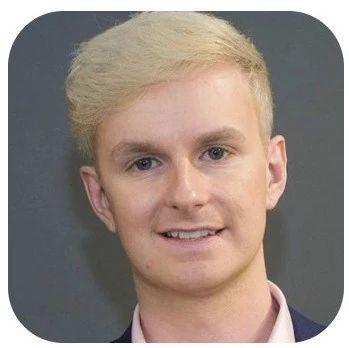全球165名前政要、学者联合致信G20呼吁国际协调行动应对危机
国际在线报道(记者 王琦):近日,记者从中国科学院国家创新与发展战略研究会了解到,其合作伙伴、国际著名智库21世纪理事会成员、英国前首相戈登·布朗联合全球前政要、学者共165人发表《致二十国集团成员倡议书》,“倡议在未来几天内采取国际协调行动,以应对新型冠状病毒肺炎疫情蔓延对全球公共卫生安全和世界经济带来的危机”。

该倡议支持世界卫生组织在协调国际抗疫行动中发挥领导作用,采取紧急措施促进世界经济尽快复苏。这需要世界各国领导人承诺并提供远超现有国际机构所能承担的资金支持。
倡议强调,当下的所有问题都是紧密相联的,必须协调行动以应对危机:“当前,如果公共卫生紧急状况不能得到有效控制,经济紧急状况也将无法解除。疫情不会因为一个国家战胜了疾病而结束,只有确保所有国家都从新冠肺炎的袭扰中恢复,才能彻底宣告这一全球卫生紧急状况的终结”。
倡议表示,世界各国领导人应当遵照全球应急准备监测委员会(GPMB)的要求,履行承诺提供80亿美元的资金,以尽快填补新冠肺炎应对措施中最紧迫的缺口;还需要筹备350亿美元为卫生体系薄弱的国家以及特别易感群体提供帮扶,包括提供重要的医疗用品,提高对其国家卫生工作人员的补助,加强国家恢复能力和准备工作。
为此,该倡议书呼吁举行一次全球认捐大会,由二十国集团执行特别工作组为主导,为全球公共卫生紧急需求提供资源。

倡议提出,目前全球性的经济困境需要一个全球性的经济应对方案,为防止流动性危机演变为偿付能力危机,防止全球经济衰退演变为全球大萧条,需要更好地协调财政、货币、央行和反保护主义的举措。
“如果我们任由疾病在非洲、亚洲和拉丁美洲一些贫穷的城市,在缺乏检测设备、呼吸机和医疗用品的脆弱社区,以及在难以保持社交距离、甚至连洗手都不能保证的地区大肆蔓延,那么新冠肺炎将会在那里长期存在,并再度侵袭世界其他地区,从而无限期延长此次危机的存续时间。”
该倡议由21世纪理事会发起。墨西哥前总统埃内斯托·塞迪略、意大利前总理马里奥·蒙蒂、加拿大前总理保罗·马丁、澳大利亚前总理陆克文、巴基斯坦前总理肖卡特·阿齐兹、新加坡前外交部长杨荣文、博古睿研究院创始人兼主席尼古拉斯·博古睿,中国科学院国家创新与发展战略研究会副会长、国际货币基金组织前副总裁朱民等21世纪理事会成员,联合国前秘书长潘基文、世界银行前常务副行长兼首席财政官伯特兰·巴德雷等国际组织前负责人,世界银行首席经济学家林毅夫等专家学者共同署名。
倡议书英文版
GLOBAL CALL TO ACTION TO
GOVERNMENTS OF THE G20 NATIONS
We are writing to call for immediate internationally coordinated action–within the next few days–to address our deepening global health and economic crises from COVID-19.
The communique from the extraordinary G20 Leaders meeting on March 19, 2020, recognized the gravity and urgency of the entwined public health and economic crises, but we now require urgent specific measures that can be agreed on with speed and at scale: emergency support for global health initiatives led by the World Health Organization (WHO) and emergency measures to restore the global economy. Both require world leaders to commit to funding far beyond the current capacity of our existing international institutions.
In 2008-2010, the immediate economic crisis could be surmounted when the economic fault line–under-capitalization of the global banking system–was tackled. Now, however, the economic emergency will not be resolved until the health emergency is effectively addressed: the health emergency will not end simply by conquering the disease in one country alone, but by ensuring recovery from COVID-19 in all countries.
Global Health Measures
All health systems–even the most sophisticated and best funded–are buckling under the pressures of the virus. Yet if we do nothing as the disease spreads in poorer African, Asian, and Latin American cities and townships and in fragile communities which have little testing equipment, ventilators, and medical supplies; and where social distancing and even washing hands are difficult to achieve, COVID-19 will persist there and re-emerge to hit the rest of the world with further rounds that will prolong the crisis.
World leaders must immediately agree to commit $8 billion–as set out by the Global Preparedness Monitoring Board–to fill the most urgent gaps in the COVID-19 response. This includes:
• $1 billion this year for WHO: This would enable WHO to carry out its critically important mandate in full. While it has launched a public appeal–200,000 individuals and organizations have generously donated more than $100 million–it cannot be expected to depend on charitable donations.
• $3 billion for Vaccines:The Coalition for Epidemic Preparedness Innovations (CEPI) is coordinating the global research effort to develop and scale up effective COVID-19 vaccines and Gavi, the Vaccine Alliance (Gavi). In addition, Gavi will have an important role procuring and equitably distributing vaccines to the poorest countries and requires $7.4 billion for its replenishment: this should be fully funded.
• $2.25 billion for Therapeutics: The COVID-19 Therapeutics Accelerator aims to deliver 100 million treatments by the end of 2020 and is seeking these funds to rapidly develop and scale-up access to therapeutics.
• Instead of each country, or state or province within it, competing for a share of the existing capacity, with the risk of rapidly increasing prices, we should also be vastly increasing capacity by supporting the WHO in coordinating the global production and procurement of medical supplies, such as testing kits, personal protection equipment, and ITU technology to meet fully the worldwide demand. We will also need to stockpile and distribute essential equipment.
A further $35 billion will be required, as highlighted by WHO, to support countries with weaker health systems and especially vulnerable populations, including the provision of vital medical supplies, surge support to the national health workforce (70% of whom in many countries are underpaid women), and strengthening national resilience and preparedness. According to WHO, almost 30% of countries have no COVID-19 national preparedness response plans and only half have a national infection prevention and control program. Health systems in lower income countries will struggle to cope; even the most optimistic estimates from Imperial College London suggest there will be 900,000 deaths in Asia and 300,000 in Africa.
We propose the convening of a global pledging conference–its task supported by a G20 Executive Task Force–to commit resources to meeting these emergency global health needs.
Global Economic Measures
Much has been done by national governments to counter the downward slide of their economies. But a global economic problem requires a global economic response. Our aim should be to prevent a liquidity crisis turning into a solvency crisis, and a global recession becoming a global depression. To ensure this, better coordinated fiscal, monetary, central bank, and anti-protectionist initiatives are needed. The ambitious fiscal stimuli of some countries will be all-the-more effective if more strongly complemented by all countries in a position to do so.
• A wider group of central banks should be given access to the arrangements for currency swaps and the International Monetary Fund (IMF) should enter into swap arrangements with the major central banks. The IMF should use those hard currency resources and establish its own swap line facility to provide emergency financial support to emerging and developing nations. But it is vital that if we are to prevent mass redundancies, the guarantees that are being given in each country are rapidly followed through by banks via on-the-ground support for companies and individuals.
• The emerging economies–and in particular those of the poorest countries–need special help, not the least in ensuring that support reaches all those affected by the drastic decrease in economic activity. The IMF has said it will mobilize all of its available resources. There should be an additional allocation of around $500-$1,000 billion in Special Drawing Rights (SDRs). At the same time, to ensure sufficient funding for individual countries, we encourage IMF members to allow lending quota limits to be exceeded in countries most in need.
• The World Bank and many of the regional development banks have recently been recapitalized, but more will be needed. It is likely that, as in 2009 when the International Bank for Reconstruction and Development’s (IBRD) spending alone went from $16 billion to $46 billion, it and the regional development banks will need a much larger expansion of available resources.
• To meet its responsibilities for humanitarian aid, and for refugees and displaced people, whose plight is likely to become desperate, and for the UN Sustainable Development Goals, UN agencies have issued this week an immediate call for $2 billion of additional resources that are urgently needed.
• The international community should waive this year’s poorer countries’ debt repayments, including $44 billion due from Africa, and consider future debt relief to allow poor countries the fiscal space to tackle the health and economic impact of the COVID-19 pandemic. We ask the G20 to task the IMF and the World Bank to further assess the debt sustainability of affected countries.
• We agree with African and developing country leaders that given the existential threat to their economies, the increasing disruption to livelihoods and education and their limited capacity to cushion people and companies, that at least $150 billion of overall support, much of it on concessional terms, will be needed for health, social safety nets, and other urgent help.
These allocations should be agreed to immediately, coordinated by a G20 Executive Task Force as part of the G20 Action Plan, and be confirmed in full at the upcoming IMF and World Bank meetings. The two core economic institutions should be given reassurances that additional bilateral funding will be forthcoming and the need for further capital injections agreed.
The longer-term solution is a radical rethink of global public health and a refashioning–together with proper resourcing–of the global health and financial architecture.
The United Nations, the governments of the G20 nations, and interested partners should work together to coordinate further action.
April 6, 2020
Signed,
Bertie Ahern
Taoiserach of the Republic of Ireland (1997-2008)
Rashid Alimov˚
Minister of Foreign Affairs of Tajikistan (1992-1994); Secretary General of the Shanghai Cooperation Organization (2016-2019)
Giuliano Amato
Prime Minister of Italy (1992-1993; 2001-2001)
Mohamed Amersi
Founder and Chairman of the Amersi Foundation
Louise Arbour
United Nations High Commissioner for Human Rights (2004-2008); United Nations Special Representative for International Migration (2017-Present)
Shaukat Aziz*
Prime Minister of Pakistan (2004-2007)
Gordon Bajnai
Prime Minister of Hungary (2009-2010)
Jan Peter Balkenende^
Prime Minister of the Netherlands (2002-2010)
Joyce Banda^
President of Malawi (2012-2014)
José Manuel Barroso^
Prime Minister of Portugal (2002-2004); President of the European Commission (2004-2014); Non-Executive Chairman of Goldman Sachs International
Kaushik Basu
Chief Economist of the World Bank (2012-2016); President of the International Economic Association (2017-Present)
Deus Bazira
Co-Director of the Center for Global Health Practice and Impact at Georgetown University Medical Center
Marek Belka
Prime Minister of Poland (2004-2005); Deputy Prime Minister and Minister of Finance (2001-2002); Director of the European Department at the International Monetary Fund (2008-2010)
Nicolas Berggruen*
Founder and Chairman of the Berggruen Institute (2010-Present)
Erik Berglöf
Chief Economist of the European Bank for Reconstruction and Development (2006-2014); Director of the Institute of Global Affairs at the London School of Economics (2015-Present)
Sali Berisha˚
President of Albania (1992-1997); Prime Minister (2005-2013)
Timothy Besley
President of the International Economic Association (2014-2017)
Carl Bildt^
Prime Minister of Sweden (1991-1994); Minister of Foreign Affairs of Sweden (2006-2014)
Valdis Birkavs^
Prime Minister of Latvia (1993-1994)
Anthony Blair
Prime Minister of the United Kingdom (1997-2007)
James Brendan Bolger
Prime Minister of New Zealand (1990-1997)
Kjell Magne Bondevik
Prime Minister of Norway (1997-2000; 2001-2005)
Lakhdar Brahimi+
Minister of Foreign Affairs of Algeria (1991-1993); United Nations & Arab League Envoy to Syria (2012-2014)
Gordon Brown*
Prime Minister of the United Kingdom (2007-2010)
Gro Harlem Brundtland+
Prime Minister of Norway (1990-1996); Director General of the World Health Organization (1998-2003)
John Bruton^
Taoiseach of the Republic of Ireland (1994-1997)
Felipe Calderón^
President of Mexico (2006-2012)
Fernando Henrique Cardoso^
President of Brazil (1995-2002)
Hikmet Çetin˚
Minister of Foreign Affairs of Turkey (1991-1994)
Helen Clark^
Prime Minister of New Zealand (1999-2008); United Nations Development Programme Administrator (2009-2017)
Emil Constantinescu˚
President of Romania (1996-2000)
Mirko Cvetković˚
Prime Minister of Serbia (2008-2012)
Gavyn Davies
Chief Economist and Chairman of the Global Investment Department at Goldman Sachs (1988-2001); Chairman of the BBC News (2001-2004)
Kemal Derviş
Minister of Economic Affairs of Turkey (2001-2002); United Nations Development Programme Administrator (2005-2009);
Ruth Dreifuss
President of the Swiss Confederation (1999)
Frederik Willem de Klerk
State President of South Africa (1989-1994)
Dominique de Villepin
Prime Minister of France (2005-2007)
Mark Dybul
Executive Director of the The Global Fund to Fight AIDS, Tuberculosis and Malaria (2012-2017); Co-Director of the Center for Global Health Practice and Impact at Georgetown University Medical Center
Victor Dzau
President of the United States National Academy of Medicine (2014-Present)
Jeremy Farrar
Director of the Wellcome Trust (2013-Present)
Joschka Fischer
Minister of Foreign Affairs and Vice Chancellor of Germany (1998-2005)
Franco Frattini˚
Minister of Foreign Affairs of Italy (2002-2004; 2008-2011); European Commissioner for Justice, Freedom, and Security (2004-2008)
Ahmed Galal
Finance Minister of Egypt (2013-2014)
Felipe González Marquez*
Prime Minister of Spain (1982-1996)
Ameenah Gurib-Fakim˚
President of Mauritius (2015-2018)
Sergei Guriev
Chief Economist of the European Bank for Reconstruction and Development (2016-2019)
Alfred Gusenbauer^ Chancellor of Austria (2000-2008)
Tarja Halonen^
President of Finland (2000-2012)
Bengt Holmström
Nobel Laureate for Economic Sciences (2016)
Mohammed Ibrahim*
Founder of Celtel; Founder and Chairman of the Mo Ibrahim Foundation (2006-Present)
Toomas Hendrik Ilves
President of Estonia (2006-2016)
Dalia Itzkik˚
Interim President of Israel (2007); President of the Knesset (2006-2009)
Mladen Ivanić˚
Chairman of the Presidency of Bosnia and Herzegovina (2016-2017); Member of the Presidency of Bosnia and Herzegovina (2014-2018)
Gjorge Ivanov˚
President of North Macedonia (2009-2019)
Hina Jilani+
Special Representative of the United Nations Secretary-General on Human Rights (2000-2008); Advocate of the Supreme Court of Pakistan (1992-Present)
Mehdi Jomaa^
Prime Minister of Tunisia (2014-2015)
Ivo Josipović˚
President of Croatia (2010-2015)
Caroline Kende-Robb
Executive Director of the African Progress Panel (2011-2017); Secretary General of CARE International (2018-2020)
John Key
Prime Minister of New Zealand (2008-2016)
Jakaya Kikwete
President of Tanzania (2005-2015)
Ban Ki-moon+^
United Nations Secretary-General (2007-2016)
Jadranka Kosor˚
Prime Minister of Croatia (2009-2011)
John Kufuor
President of Ghana (2001-2009)
Luis Alberto Lacalle de Herrera^
President of Uruguay (1990-1995)
Ricardo Lagos*+
President of Chile (2000-2006)
Zlatko Lagumdzija^
Minister of Foreign Affairs of Bosnia and Herzegovina (2012-2015)
Pascal Lamy*
Director-General of the World Trade Organization (2005-2013)
Hong-Koo Lee^
Prime Minister of South Korea (1994-1995)
Yves Leterme^
Prime Minister of Belgium (2009-2011)
Enrico Letta
Prime Minister of Italy (2013-2014)
Justin Yifu Lin
Chief Economist of the World Bank (2008-2012); Dean of the Institute of New Structural Economics at Peking University
Nora Lustig
President Emeritus of the Latin American and Caribbean Economic Association
Graça Machel+
Education and Culture Minister of Mozambique (1975-1986)
John Major
Prime Minister of the United Kingdom (1990-1997)
Paul Martin*
Prime Minister of Canada (2003-2006)
Rexhep Meidani˚^
President of Albania (1997-2002)
Stjepan Mesić˚^
President of Croatia (2000-2010)
Mario Monti*
Prme Minister of Italy (2011-2013)
Amre Moussa˚
Minister of Foreign Affairs of Egypt (1991-2001)
Dawn Nakagawa
Executive Vice President of the Berggruen Institute (2010-Present)
Andrew Natsios
United States Agency for International Development Administrator (2001-2006)
Bujar Nishani˚
President of Albania (2012-2017)
Christopher Olusegun Obasanjo
President of Nigeria (1999-2007)
Ngozi Okonjo-Iweala
Board Chair of the Global Alliance for Vaccines and Immunisation (2016-Present); Finance Minister of Nigeria (2011-2015)
James O’Neill
Chair of Chatham House
Djoomart Otorbayev˚
Prime Minister of Kyrgyzstan (2014-2015)
Roza Otunbayeva^
President of Kyrgyzstan (2010-2011)
Geoffrey Palmer
Prime Minister of New Zealand (1989-1990); Chair of the New Zealand Law Commission (2005-2010)
Christopher Pissarides
Nobel Laureate for Economic Sciences (2010)
Jan Pronk
Minister for Development Cooperation of the Netherlands (1989-1998)
Zeid Raad al Hussein+
United Nations High Commissioner for Human Rights (2014-2018)
Iveta Radičová
Prime Minister of Slovakia (2010-2012)
Jose Ramos Horta^
President of East Timor (2007-2012)
Òscar Ribas Reig^
Prime Minister of Andorra (1982-1984; 1990-1994)
Mary Robinson+^
President of Ireland (19990-1997); United Nations High Commissioner for Human Rights (1997-2002); Chair of the Elders (2018-Present)
Dani Rodrik
President-Elect of the International Economic Association (2017-Present)
Petre Roman^
Prime Minister of Romania (1989-1991)
Kevin Rudd*
Prime Minister of Australia (2007-2010; 2013)
Julio Maria Sanguinetti^
President of Uruguay (1985-1990; 1995-2000)
Juan Manuel Santos+
President of Colombia (2010-2018); Nobel Peace Prize Laureate (2016)
Kailash Satyarthi
Nobel Peace Prize Laureate (2014)
Wolfgang Schüssel
Chancellor of Austria (2000-2007)
Ismail Serageldin˚
Vice President of the World Bank (1992-2000)
John Sexton
President Emeritus of New York University; President of New York University (2002-2015)
Jennifer Shipley^
Prime Minister of New Zealand (1997-1999)
Ellen Johnson Sirleaf+
President of Liberia (2006-2018)
Michael Spence*
Nobel Laureate for Economic Sciences (2001)
Devi Sridhar
Professor of Global Public Health at the University of Edinburgh (2014-Present); Member of World Economic Forum Global Agenda Council on the Health Industry
Nicholas Stern
Chief Economist of the World Bank (2000-2003); Chief Economist of the European Bank for Reconstruction and Development (1994-1999)
Joseph Stiglitz*
Chief Economist of the World Bank (1997-2000); Nobel Laureate for Economic Sciences (2001)
Petar Stoyanov˚
President of Bulgaria (1997-2002)
Laimodota Straujuma˚
Prime Minister of Latvia (2014-2016)
Lawrence Summers*
Unites States Secretary of the Treasury (1999-2001); Director of the United States National Economic Council (2009-2010); Chief Economist of the World Bank (1991-1993)
Boris Tadić˚
President of Serbia (2004-2012)
Helle Thorning-Schmidt*
Prime Minister of Denmark (2011-2015)
Eka Tkeshelashvili˚
Deputy Prime Minister of Georgia (2010-2012)
Danilo Türk˚
President of Slovenia (2007-2012)
Cassam Uteem˚
President of Mauritius (1992-2002)
Andrés Velasco
Finance Minister of Chile (2006-2010); Dean of the School of Public Policy at the London School of Economics (2018-Present)
Guy Verhofstadt
Prime Minister of Belgium (1999–2008)
Vaira Vīķe-Freiberga˚
President of Latvia (1999-2007)
Leonard Wantchekon
Founder and President of the African School of Economics (2004-Present)
Shang-Jin Wei
Chief Economist of the Asian Development Bank (2014-2016)
Rowan Williams
Archbishop of Canterbury (2002-2012); Chair of Christian Aid (2013-Present)
James Wolfensohn
President of the World Bank (1995-2005)
George Yeo*
Minister of Foreign Affairs of Singapore (2004-2011); Minister of Trade and Industry for Singapore (1999-2004)
Malala Yousafzai
Nobel Peace Prize Laureate (2014)
Kateryna Yushchenko˚
First Lady of Ukraine (2005-2010)
Viktor Yushchenko˚
President of Ukraine (2005-2010)
José Luis Rodríguez Zapatero
Prime Minister of Spain (2004-2011)
Ernesto Zedillo*+
President of Mexico (1994-2000)
Min Zhu*
Deputy Managing Director of the International Monetary Fund (2011-2016)
Action Aid
Girish Menon, CEO
CARE International UK
Laurie Lee, CEO
Catholic International Development Charity
Christine Allen, Director
Christian Aid
Amanda Mukwashi, CEO
Save the Children International
Inger Ashing, CEO
Save the Children UK
Kevin Watkins, CEO
WaterAid UK
Tim Wainwright, CEO
We are also grateful for the assistance of Dr Abiy Ahmed, Prime Minister of Ethiopia;H.E. Julius Maada Bio, President of Sierra Leone;Sheikh Hasina Wazed, Prime Minister of Bangladesh; andKen Ofori-Atta, Finance Minister of Ghana and Chair of the World Bank Development Committee.
* Member of the Berggruen Institute 21st Century Council
+ Member of The Elders
˚ Member of Nizami Ganjavi International Center
^ Member of World Leadership Alliance Club de Madrid






















评论